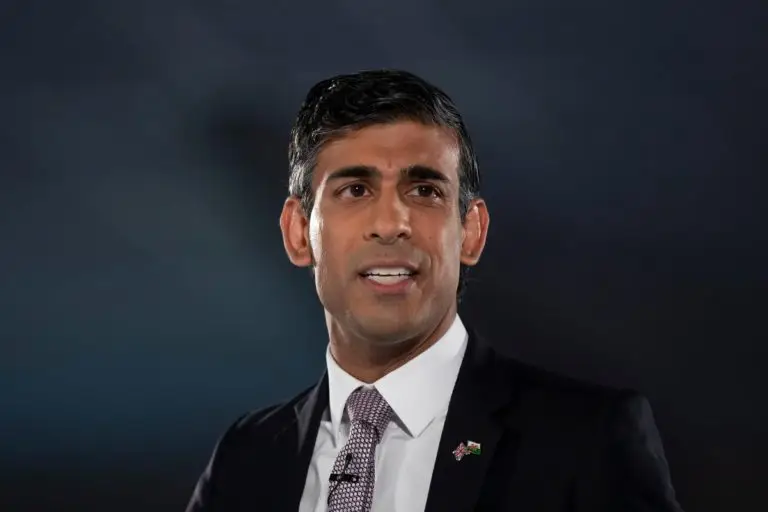In his first speech of 2023, the prime minister announced his vision to see all school pupils study maths until the age of 18.
This has raised many questions and views across the sector – provoking both positive reactions and critical questions.
So, what exactly is his vision?
Sunak has set out his aim for every school pupil in England to study maths, in some form, until the age of 18.
The details of how this would work in practice have not yet been revealed, but options to either extend current qualifications or explore “more innovative options” are being discussed, with Sunak stating that the UK needs to “reimagine our approach to numeracy”.
Why has Sunak introduced this policy?
The prime minister says only half of pupils aged 16 to 19 study maths (including those who study science qualifications or are resitting GSCE maths). Sunak ultimately wants to increase this figure.
The prime minister believes that given the increasingly digitalised and data-driven society in which we live, pupils need to be adequately prepared to navigate work and life effectively in the years to come. He stated, “In a world where data is everywhere and statistics underpin every job, letting our children out into that world without those skills is letting our children down.”
He also stated during his speech that he wants more people to feel confident about finances, including understanding their personal finances such as mortgages.
What are the likely benefits of the scheme?
Increasing young people’s mathematical skills sounds like a good thing. With greater knowledge and understanding of numbers, the next generation would be better equipped to manage their money and better qualified for future jobs that require skills such as data analysis and the use of technology.
The scheme is also part of a much bigger picture for the government as it looks to enhance numeracy skills across the board. For example, Skills for Life’s ‘Multiply’ scheme is a new government-funded programme to help adults improve their numeracy. It is hoped that this multi-pronged approach will help address the whole nation’s skill set.
What are the challenges?
Sunak’s plans, however, have been met with criticism, both from the education sector and from the opposition. Concerns are focused on its ambiguity, the unaddressed teacher recruitment crisis (particularly for specialist subjects such as Maths) and the concept’s ability to deliver on enhancing pupils’ maths attainment.
Sunak’s vision is in the early stages of development with the government openly acknowledging that it would not come to fruition until the next government. However, there has not been a clear explanation of how this vision would be delivered and what content any future courses would cover. This has created a lack of confidence, with Rob Colbourne, CEO of Performance Through People, questioning “will the curriculum be fit for purpose for the employers taking on the young people or will they need to start again on the mathematical skills required for that particular sector?” Nevertheless, this could leave room for those in the sector to advise and influence how this vision is brought to life as well as allowing solutions such as education technology to play a key role in delivery.
Questions have also been raised as to whether studying maths until 18 is the right choice for every young person. Andy Street, Mayor of West Midlands Combined Authority, has added to this debate, talking to FE Week this week about how he believes his career “would have been thwarted” had he studied maths until 18. Though, he did acknowledge that a good mathematical understanding will be needed for the jobs of the future.
Despite a lack of clarity, teaching maths to more pupils will inevitably require more maths teachers. Yet, this country has experienced a downfall in maths teachers, with a survey by the National Foundation for Educational Research (NFER) finding that 45% of secondary schools in England have used non-specialist teachers to deliver some maths lessons in 2021. Geoff Barton, General Secretary of the Association of School and College Leaders, added, “… the huge problem here is that there are nowhere near enough maths teachers in the education system. In fact, the government has missed its initial teacher training target for maths teachers in every year since 2012/13.” For Sunak’s plan to be successful, the recruitment crisis needs to be addressed.
In addition to this, some go further, explaining we not only need more teachers but that we need to ensure a high quality of teachers, so pupils’ maths attainment is raised across the board. The Liberal Democrat education spokesperson, Munira Wilson, went as far as to say, “Too many children are being left behind when it comes to maths, and that happens well before they reach 16.” The new scheme will need to ensure pupils leave school having secured the appropriate level of maths attainment.
While Sunak’s vision for a highly numerate population is commendable, the sector will be looking for clear plans over the coming months that address how this vision will be implemented and how more teachers will be recruited in order to secure long-term improvements in maths attainment for our young people.





